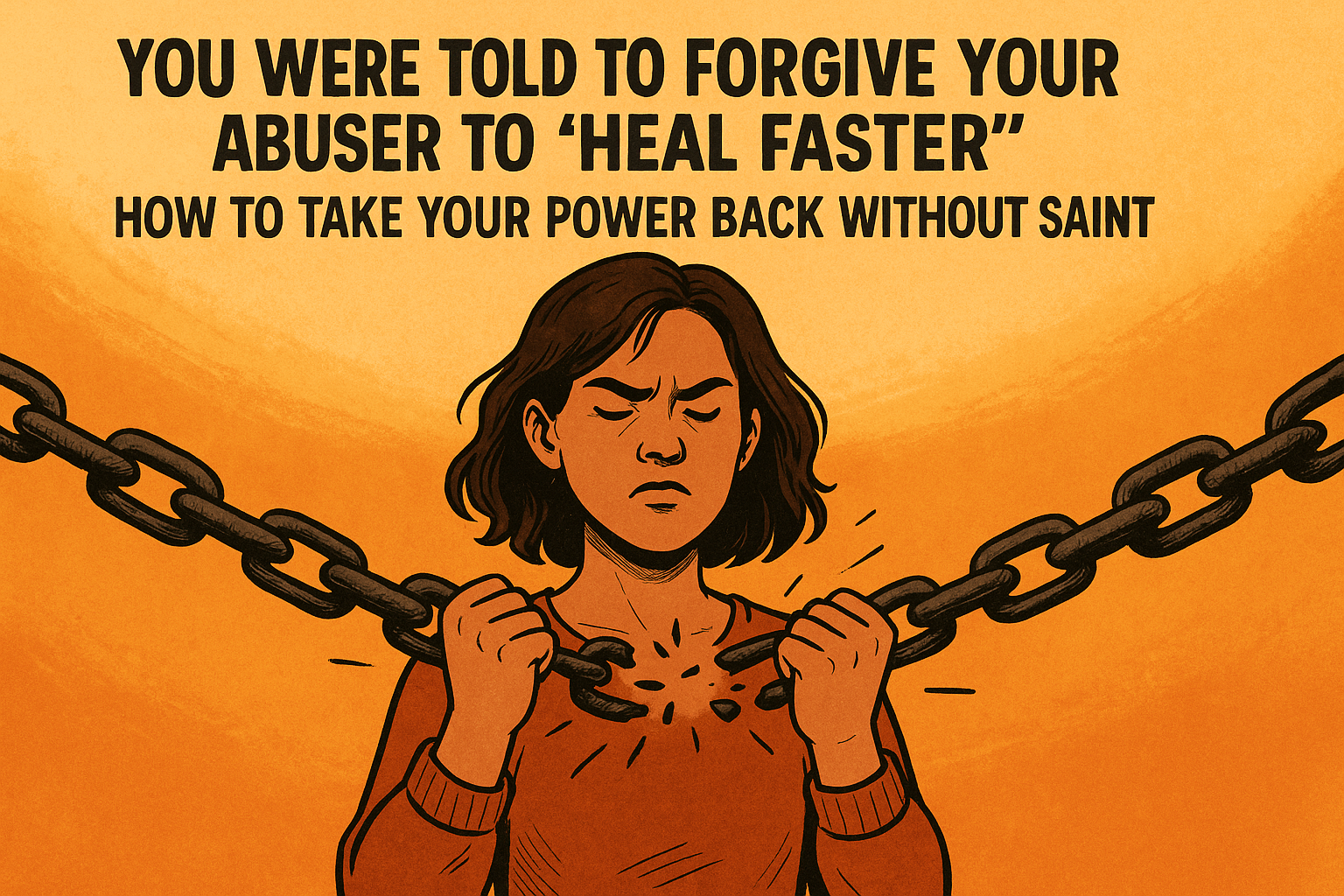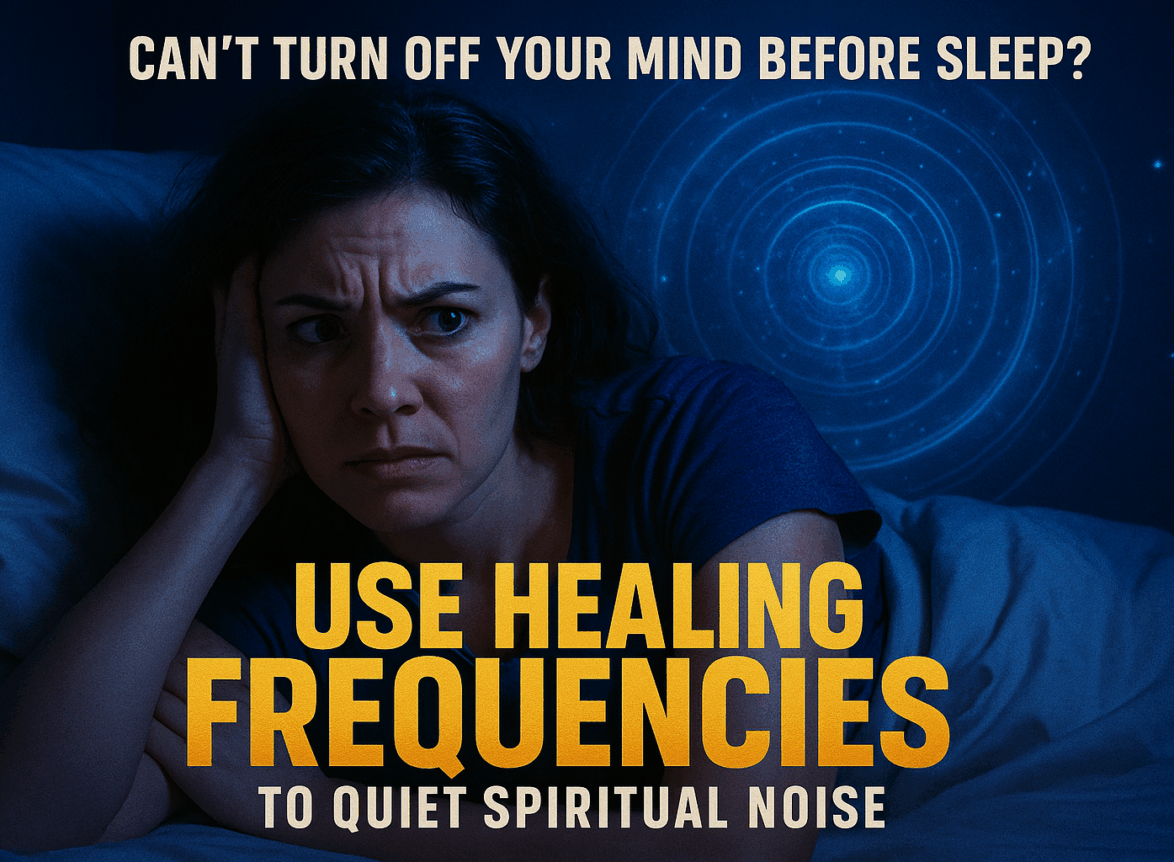“You need to forgive to heal.”
“Let go of the past — it’s only hurting you.”
“Forgiveness is for you, not for them.”
These phrases have been used like holy scripture in therapy rooms, spiritual circles, and family interventions.
But what happens when that forgiveness is forced, rushed, or expected from a place of guilt?
What happens when you’re pressured to forgive someone who’s still hurting you, someone who never took accountability, or someone protected by the same system telling you to “move on”?
Here’s what happens:
You don’t heal faster. You bleed silently — and blame yourself for still hurting.
This blog post is not an anti-forgiveness rant.
It’s a truth serum for survivors who were spiritually or socially coerced into playing Saint — just to make everyone else comfortable.
If you’re still angry, still trembling, still waking up from betrayal, this is for you.
🧠 The Lie You Were Sold: “Forgive, So You Can Be Free”
In theory, forgiveness is beautiful.
In truth, it has been hijacked.
Here’s what they really meant when they told you to forgive:
- “Stop making us uncomfortable.”
- “Stop holding the abuser accountable.”
- “Stop disrupting the illusion that we’re all doing fine.”
You weren’t asked to forgive because they cared about your peace.
You were asked to forgive because your pain exposed something they didn’t want to face.
So they turned your wound into a spiritual checklist — and shamed you for not checking the “forgiveness” box fast enough.
⚠️ What Forced Forgiveness Actually Does
When you “forgive” before you’ve truly processed:
- You dissociate from your own anger
- You minimize what was done to you
- You silence the part of you still screaming for justice
- You spiritualize your trauma instead of integrating it
This is not healing.
This is emotional exile with a smile on your face.
🧭 The Solution: Take Your Power Back Without Playing Saint
Here’s how to reclaim your energy, truth, and soul without buying into the guilt-trap of false forgiveness:
✅ 1. Redefine Forgiveness on Your Own Terms
Stop using their definition.
Your forgiveness doesn’t have to mean:
- Reconnecting
- Justifying
- Excusing
- Minimizing
Instead, ask yourself:
“What does justice look like for me — emotionally, spiritually, energetically?”
Sometimes justice is silence.
Sometimes it’s distance.
Sometimes it’s staying angry until your nervous system feels safe again.
You don’t owe anyone forgiveness as a performance.
✅ 2. Feel the Rage Fully — Without Censoring Yourself
Rage is not low vibration.
Rage is sacred survival data.
If you’re angry, that’s your body saying:
“That was not okay. And it never will be.”
Don’t chant your way out of that.
Don’t journal it into light too soon.
Instead:
- Scream in a pillow
- Write letters you never send
- Hit a punching bag or drum until your body empties
Your rage is medicine. Use it. Don’t bury it under forgiveness robes.
✅ 3. Don’t Reconnect with People Who Haven’t Changed
If they:
- Never took accountability
- Shift blame to you
- Say “That’s in the past”
…They’re not sorry. They’re done being confronted.
True forgiveness is irrelevant if the person hasn’t done their part.
You don’t need to spiritually release them — you need to physically, emotionally, and energetically cut the cord.
That is healing.
✅ 4. Honor the Part of You That Still Feels Betrayed
People will say:
“But that was years ago.”
“Why are you still hung up on it?”
Answer:
Because trauma isn’t on their timeline — it’s on your body’s.
You don’t owe the world a “healed version” of you.
You owe yourself the full version — uncut, unfiltered, still grieving if needed.
✅ 5. Create a Sacred Closure Without Them
If waiting for closure is keeping you stuck, create your own ritual.
Ideas:
- Burn a letter with every word you wish they’d said
- Cut a piece of string while saying: “I release your hold on my nervous system”
- Cleanse your space while declaring: “You are not welcome in my energy field anymore”
Closure isn’t a conversation. It’s a ceremony.
And you can do it alone — for you.
✅ 6. Reclaim Your Identity from the ‘Good Person’ Mold
Being a “good person” doesn’t mean:
- Letting people walk on you
- Giving people access to your peace
- Playing spiritual janitor to their chaos
You don’t have to be nice to be free.
You can be raw. Unforgiving. Fiercely self-protective.
That’s not toxic. That’s truthful.
💣 Final Word: You Were Never Meant to Play Saint
Forgiveness should be earned — not expected.
It’s not a currency to buy back your worth.
It’s not a shortcut to healing.
And it’s definitely not a performance you owe the world.
If you’re not ready to forgive — don’t.
You can still heal.
You can still be holy.
You can still rise.
Even if you never utter the words “I forgive you.”
Because sometimes the most powerful act of healing is refusing to let the world rewrite your rage into silence.







Leave a comment
Your email address will not be published. Required fields are marked *